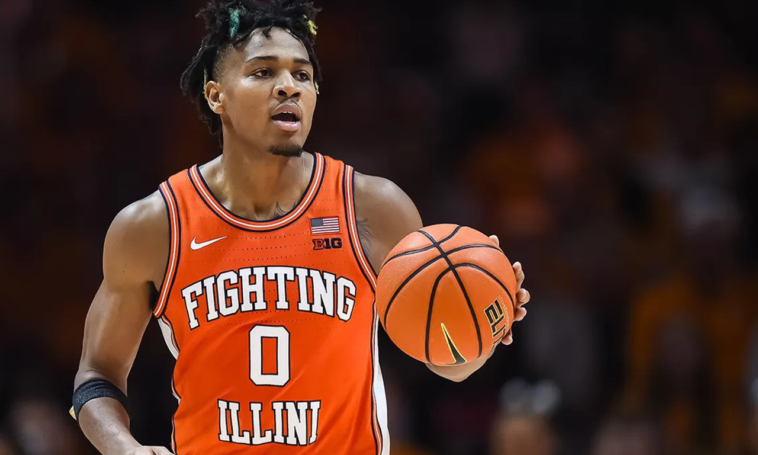Judge ends suspension of Illinois basketball star Terrence Shannon Jr., who faces rape charge.
Illinois basketball player Terrence Shannon Jr. was reinstated after a federal judge issued a temporary restraining order against the institution. This month, Shannon, charged with rape, requested his suspension be lifted.
U.S. District Judge Colleen Lawless granted Shannon a preliminary injunction, allowing him to return to basketball “immediately,” the school confirmed. The institution pledged to review the court order and follow the matter.
“The Plaintiff has established that he has clearly ascertainable rights that need protection and there is some likelihood of success on the merits.” Judge Colleen Lawless
Shannon’s lawyers said the institution made a hasty decision without following protocol. Judge Lawless determined that Shannon cannot be suspended without policy protection from the school’s Office of Student Conflict Resolution.
Shannon was charged with rape or sexual battery by Douglas County prosecutors on December 5. The 2005-born accuser said Shannon groped her sexually under her skirt in a crowded gathering, paralyzing her. On December 28, the university stopped Shannon from all team activities after her arrest warrant.
After knowing about the claims since September, the institution said it received actionable evidence on December 27.
The judicial processes have highlighted collegiate sports and the justice system. Shannon’s reinstatement comes as the institution and legal authorities grapple with complex case management difficulties.
Shannon and the discourse regarding colleges’ obligations and standards when handling severe student-athlete charges are affected by this development. Despite legal issues, Shannon’s return to the squad is significant as Illinois, ranked 14th, prepares to meet Rutgers.
Terrence Shannon Jr.’s case highlighted institutions’ hard line between encouraging athletes and tackling significant legal issues. Shannon’s readmission sparks a discussion about collegiate sports’ handling of such incidents as legal processes continue.
U.S. District Judge Colleen Lawless’ temporary restraining order and preliminary injunction highlight these cases’ intricacy. Shannon’s lawyers alleged the institution rushed judgment due to procedure concerns. According to the judge, following guidelines ensures fair process for people facing serious claims.
The case also raises problems concerning criminal charges and university athletics. Shannon’s reinstatement to the squad despite legal issues shows institutions’ struggles with high-profile athletes accused of severe crimes. The assumption of innocence and university reputation protection are difficult to balance.
The court order emphasises procedural safeguards for the accused, so the legal proceedings may continue. Judge Lawless’s claim that Shannon’s potential harm outweighs the university’s emphasizes the need of protecting individual rights while considering the university’s influence.
The university will evaluate the court order and monitor the matter, but Shannon’s readmission may affect the basketball team and athletic program. Universities’ responses to significant student-athlete allegations will certainly be shaped by legal scrutiny.
Shannon will play the rest of the season for the No. 14 Illinois Fighting Illini. Shannon’s return to sports shows the continual issue of balancing legal processes with collegiate sports.
Finally, Terrence Shannon Jr.’s reinstatement amid rape charges is a complicated legal and sports case. Universities must follow rules and provide procedural safeguards when investigating severe student-athlete complaints, according to the court. As the legal case proceeds, it raises questions about the delicate balance between individual rights and educational institutions’ reputations in high-stakes collegiate athletics.





Join the Community and Be a Part of the Conversation
You must be logged in or registered to post a comment.